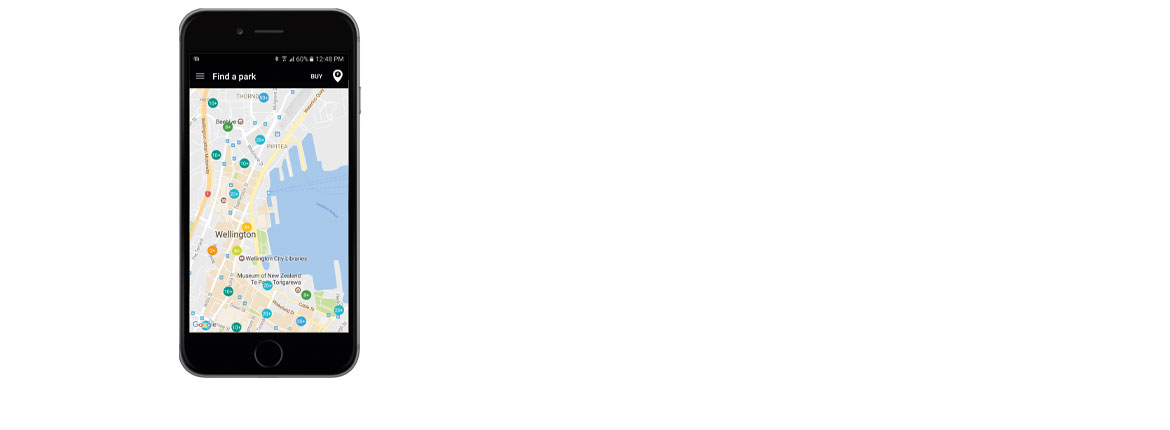The business of parking is getting a whole lot smarter, reports Mark Stockdale.
How often have you had to fumble for change to feed a parking meter, or struggled to operate a parking machine?
And how often have you had to guess how much time you need and then found yourself running late, and worried you might return to your car to find you’ve been given a parking ticket? And if you’ve been ticketed because the pay and display receipt has fluttered off your dashboard, you’re not alone.
Thanks to the ubiquitous smartphone, those situations are numbered.
In parts of New Zealand, city councils and private parking providers are rolling out smart parking technology which means you can pay for a car park without opening your wallet or needing to guess the amount of time you need.
Smart parking technology is part of the much-touted ‘intelligent transport systems’, predicted to transform mobility, save lives, reduce congestion and reduce costs. Smart parking will help achieve many of these things.
Overseas research suggests 30% of cars in congested downtown traffic are looking for a vacant car park. Sensors in the road surface can identify an unoccupied car park and notify motorists via a smartphone app, saving time looking for a park and reducing congestion in the process. Retailers will also benefit because shoppers will more easily find a park, helping encourage more to come into the inner-city.
Apps will automatically pay the parking fees for the exact time you use, meaning no more pesky receipts, saving time mucking around at the machine, and reducing costs, as you won’t put more coins into machines than you need to. It will also eliminate fines for those that mistakenly underestimate how much time they need. In parking buildings, customers can set up an account with fees deducted according to arrival and departure times monitored by number plate recognition cameras or electronic tags, while surface sensors linked to overhead signals help direct users to a vacant bay.
By improving compliance, smart parking reduces the likelihood of motorists receiving penalties.
AA surveys show 14% of Members received a parking penalty in the past six months, compared to 12% who got a speeding ticket. Over 86% of Members think clamping or towing is too harsh a penalty for someone who has overstayed by 20 minutes; 62% think a warning is fair.
In Wellington city, motorists just have to enter the unique number that identifies each bay into a phone app, and then “pay and walk away,” as Wellington City Councillor Chris Calvi-Freeman describes it. The parking sensors also collect data about car park turnover and occupancy, which helps with planning.
“Like all cities where space is at a premium, we have to make choices about how we allocate road space,” Calvi-Freeman says.
Provided you stay no longer than the two-hour limit, gone are the days of being fined for underestimating how much time you need, e.g. paying for one hour when you ended up needing 90 minutes.
Gone too, are the days of overpaying, e.g. paying the full two hours when you only used 90 minutes. With the app, you pay to the nearest minute, although you can also choose a set time with the app giving you the option of topping up remotely when time is running out.
Auckland Transport introduced a similar system in the central city in February, with its new ‘AT Park’ app being trialled by a group of AA Members before launch.
Private parking providers are also getting in on the app game. Wilson Parking’s ‘ParkMate’ also does away with cash and the receipt, and a side benefit of their national network means their app can be used at 240 locations around New Zealand.
The AA wants council parking apps to be able to be used inter-regionally too, to avoid the confusion motorists currently experience when using different parking machines. Likewise, the AA wants paying by app to cost no more than by cash, with no additional transaction fees, to encourage their use.
In future, this technology could also enable councils to temporarily increase the maximum time limits when parking precincts are under-utilised, and give motorists the option of paying for more than two hours. This would also reduce fines to motorists who unavoidably go over the time restriction and are frustrated by the fact that they couldn’t extend their time, despite many bays being empty.
In Palmerston North a type of ‘surge pricing’, not unlike that which Uber applies to its ride-share services during times of high demand, operates at an off-street precinct in Church Street, whereby motorists pay less to park at off-peak times which encourages people to be smarter about when they choose to shop. App users – there is no cash option – are also rewarded with free parking with certain purchases.
Auckland Transport will apply graduated pricing to some of their city car parks, abolishing the time limit, but charging more with each passing hour. Those who need to park on the street for a longer period can now do so free of penalty, while the escalating rates will encourage others to find a cheaper off-street car park.
Smart parking isn’t just the preserve of councils and private parking companies. Anyone can get in on the act. In Auckland and Wellington, the ‘Parkable’ app allows homeowners or businesses to rent out spare car parks, providing some extra pocket money while boosting parking choices for motorists. If it sounds like a parking version of ride-sharing, you’re right; the app developers say they want to become the 'Uber of parking'.
Reported for our AA Directions Spring 2024 issue




